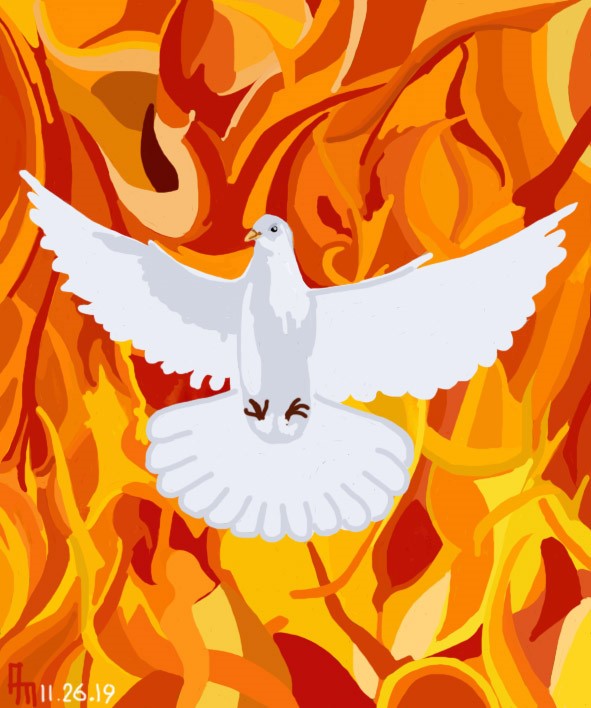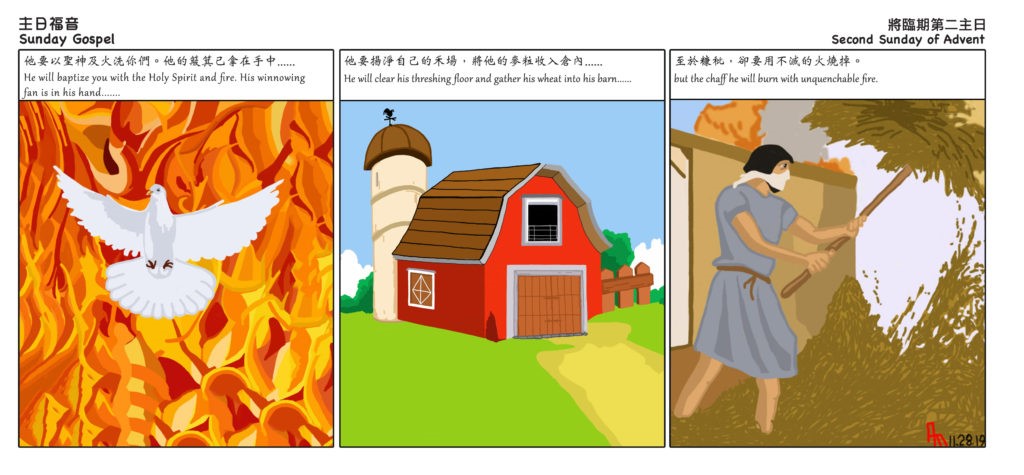MATTHEW 3:1-12
– Fr. Fernando Armellini SCJ
Claretian Publications, Macau
Not everyone responded well to the invitation of John the Baptist. Not all were willing to work a radical change of heart. The Pharisees and Sadducees, while intrigued by the preaching of John, found it hard to get involved. They did not trust him but preferred to keep their certainties (vv. 7-10). They thought they were already right with God for the fact of being children of Abraham.
The Baptist’s reproach of the Pharisees and Sadducees is severe: “Brood of vipers!” He compares them to snakes that inject their poison of death in those who inadvertently come close to them. Then he announces the disasters that are about to hit them. They run the risk of being cut off like a tree that does not bear fruit and of being burnt like chaff.
The tone is threatening, and it is not surprising on the lips of John the Baptist. The preachers of that time expressed themselves that way.
When he spoke of God’s wrath, John had no clear idea of how it would manifest. The wrath of God is an image that recurs often in the Old Testament. It is not intended as an explosion of hatred on the victim. It is an expression of God’s love: he is fighting evil, not the person who does it. He does not want to hit the person, but to free each one from sin.
The axe, which cuts the trees at the root, has the same function given by Jesus to the scissors pruning the vine and freeing it from useless branches that deprive it of precious sap and suffocate it (Jn 15:2).
The cuts are always painful, but those done by God are providential. They create the conditions for new branches to sprout and produce fruits.
The fan, finally, with which the Lord realizes his judgment, is a living image. It describes the way in which God screens the work of every person. In human courts, judges take into account only the errors and pronounce judgment on the basis of the harm done. They take little account of good works. In the tribunal of confession, the exact opposite happens: God, with the winnowing fan of his word, puts every person under the discerning breath of his Spirit that blows away the chaff and leaves only the precious grains on the threshing floor: the works of love, few or many, that each one had performed.



 Follow
Follow


